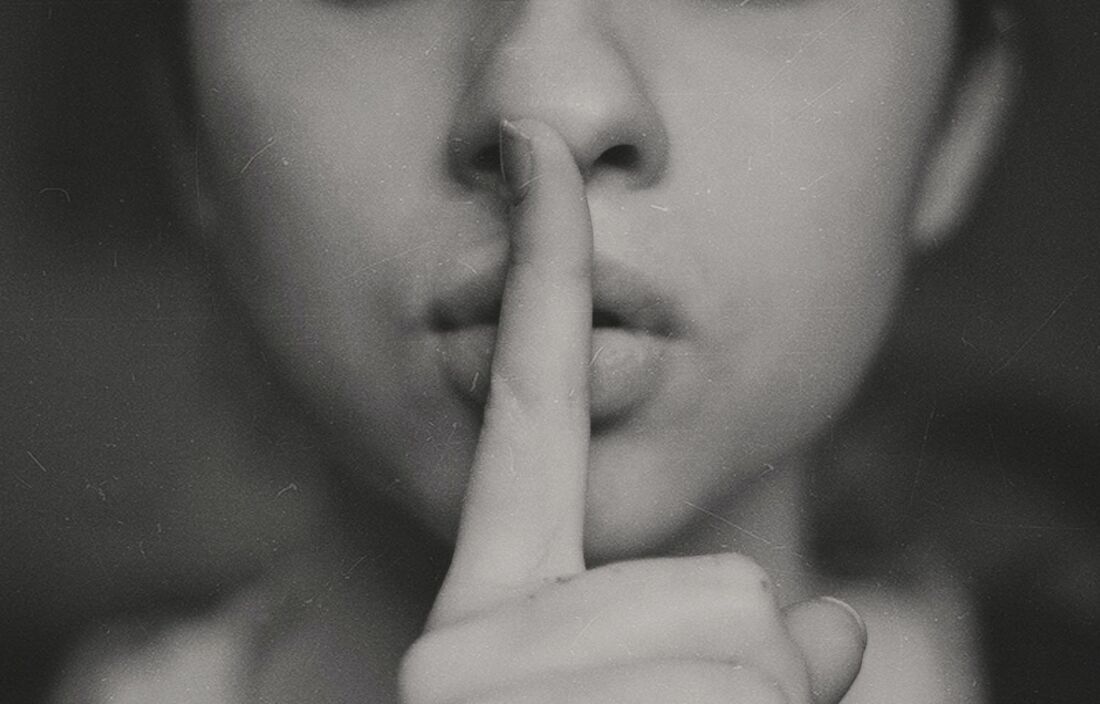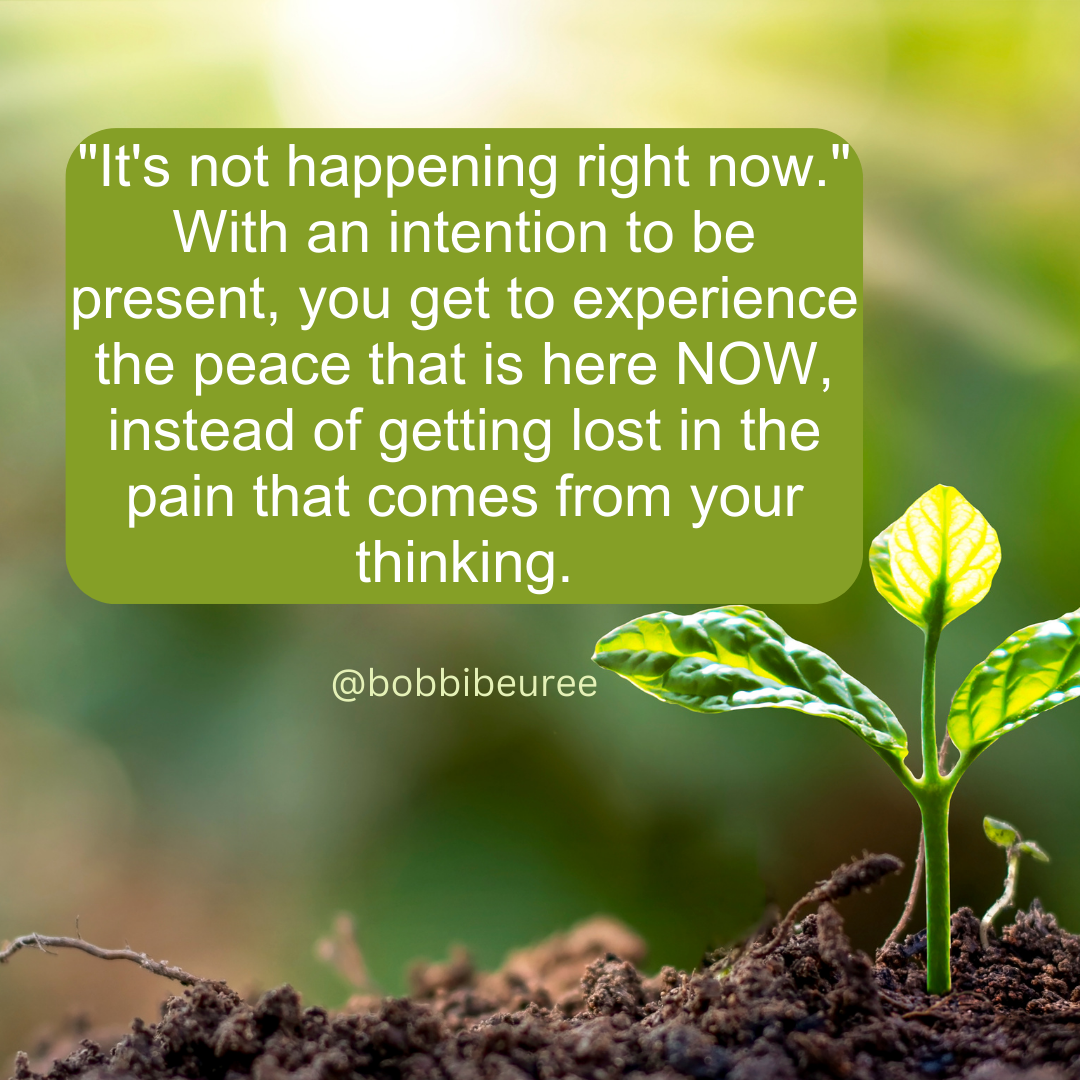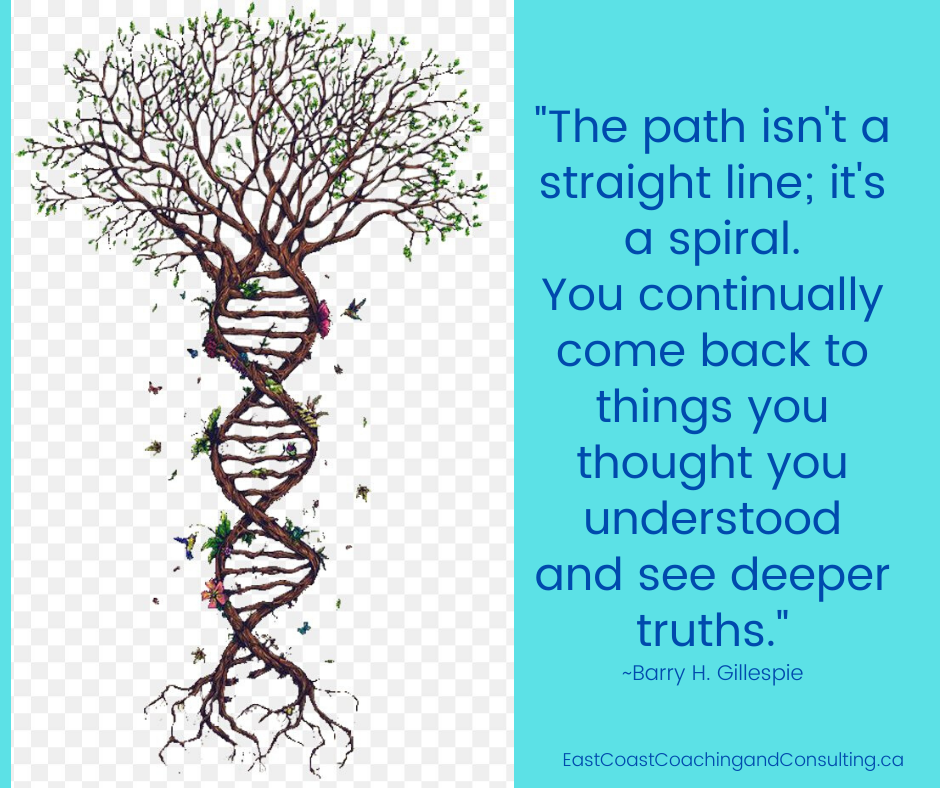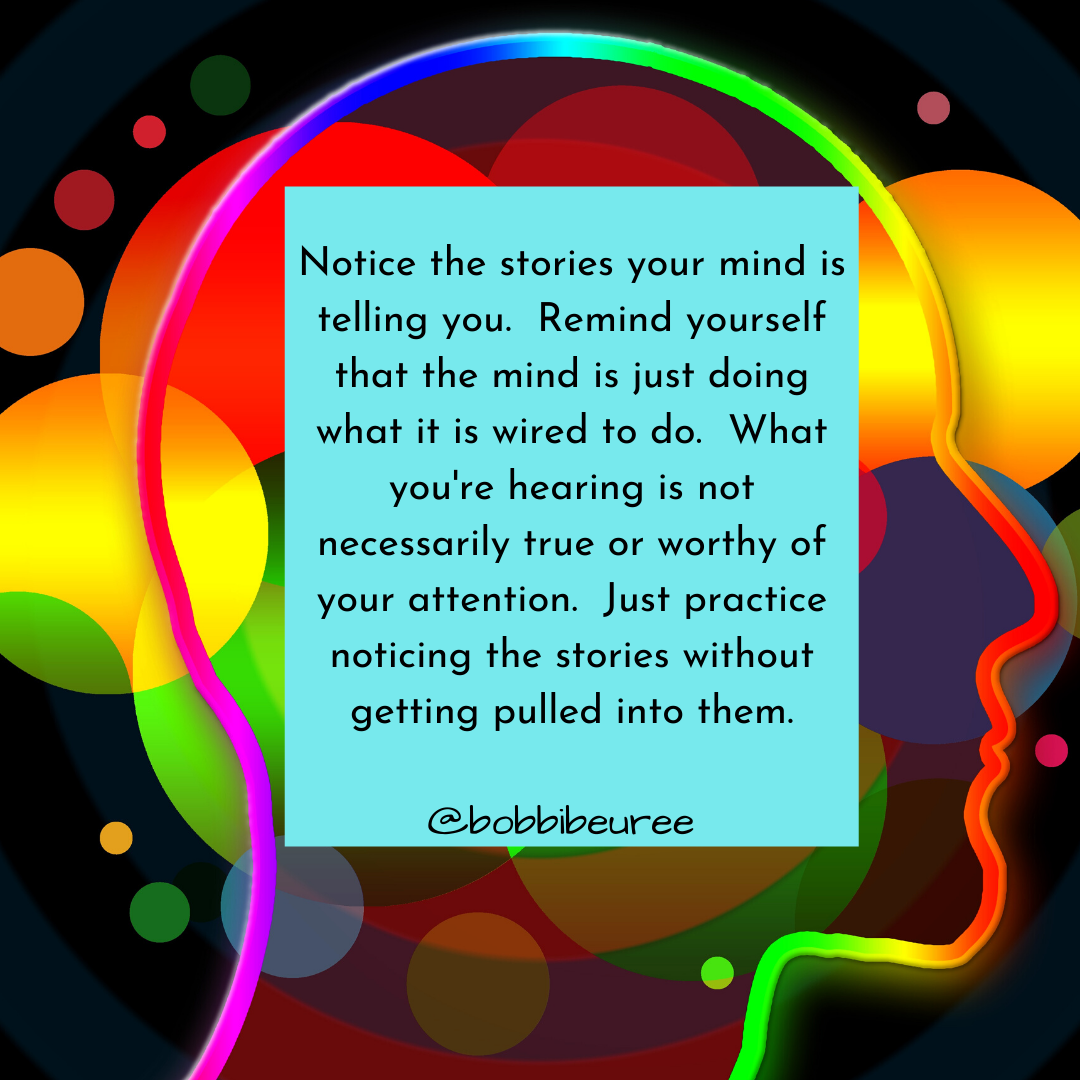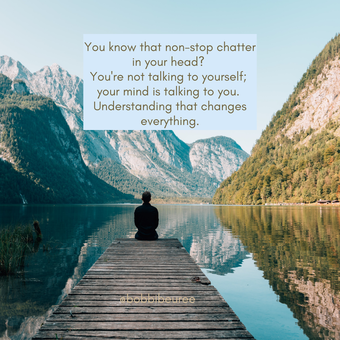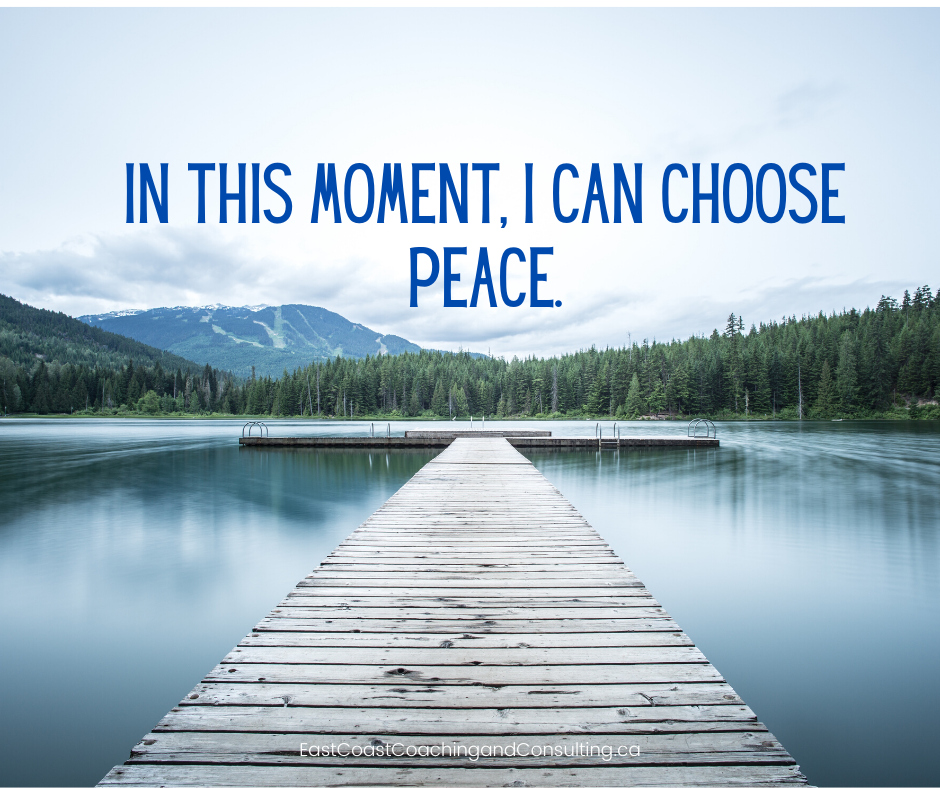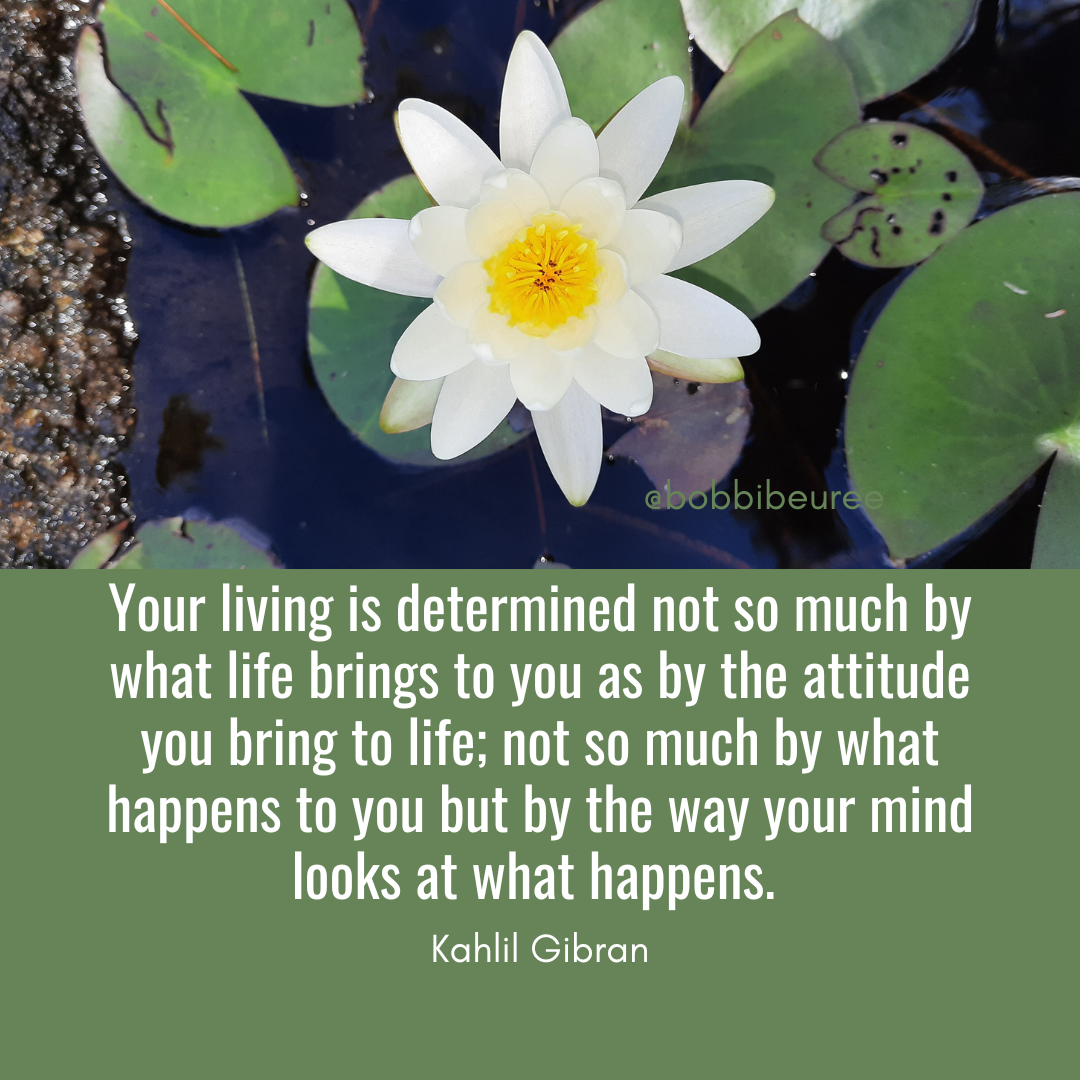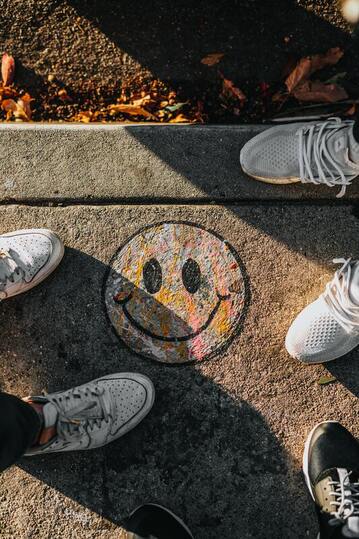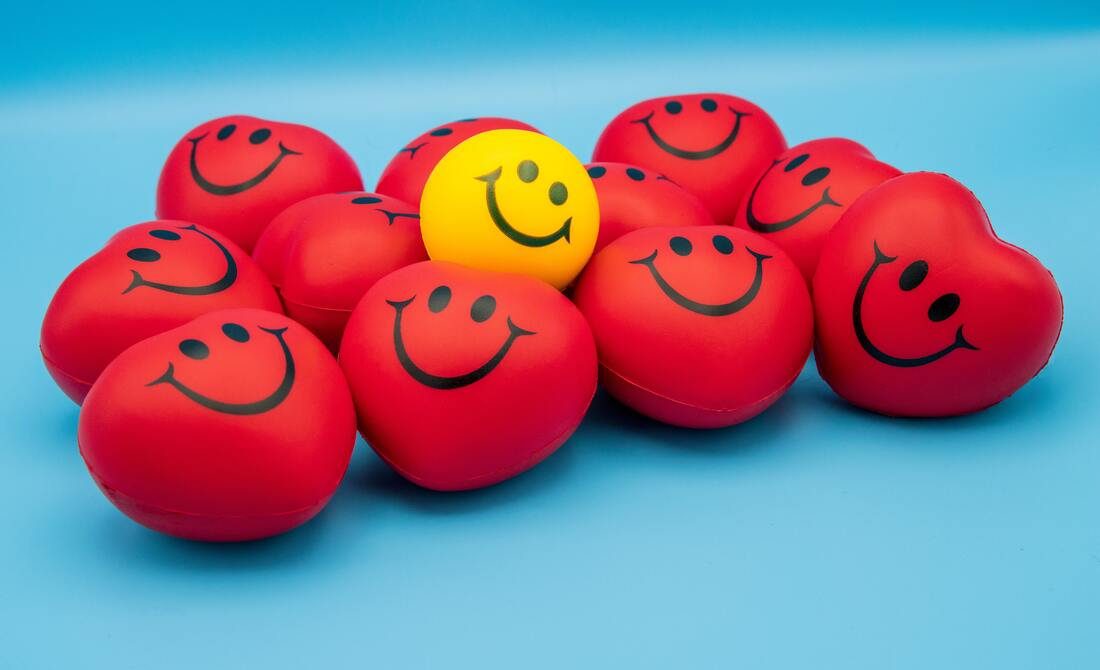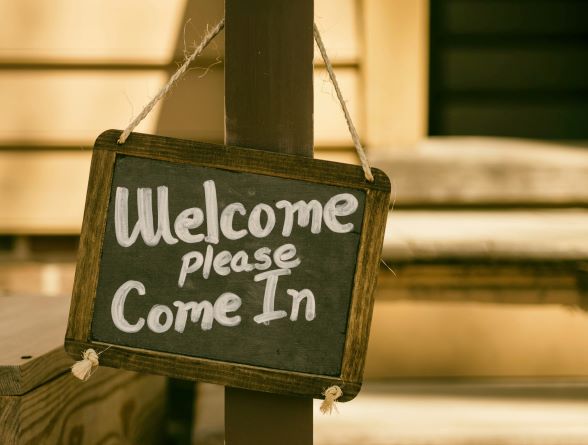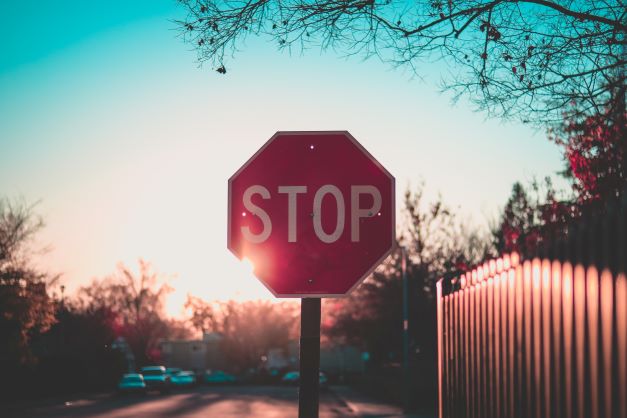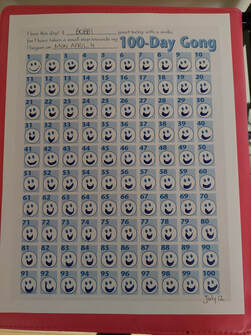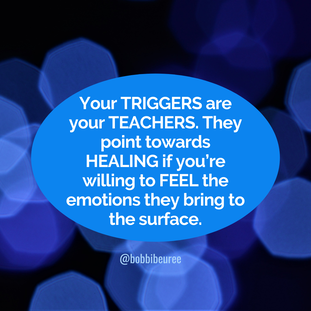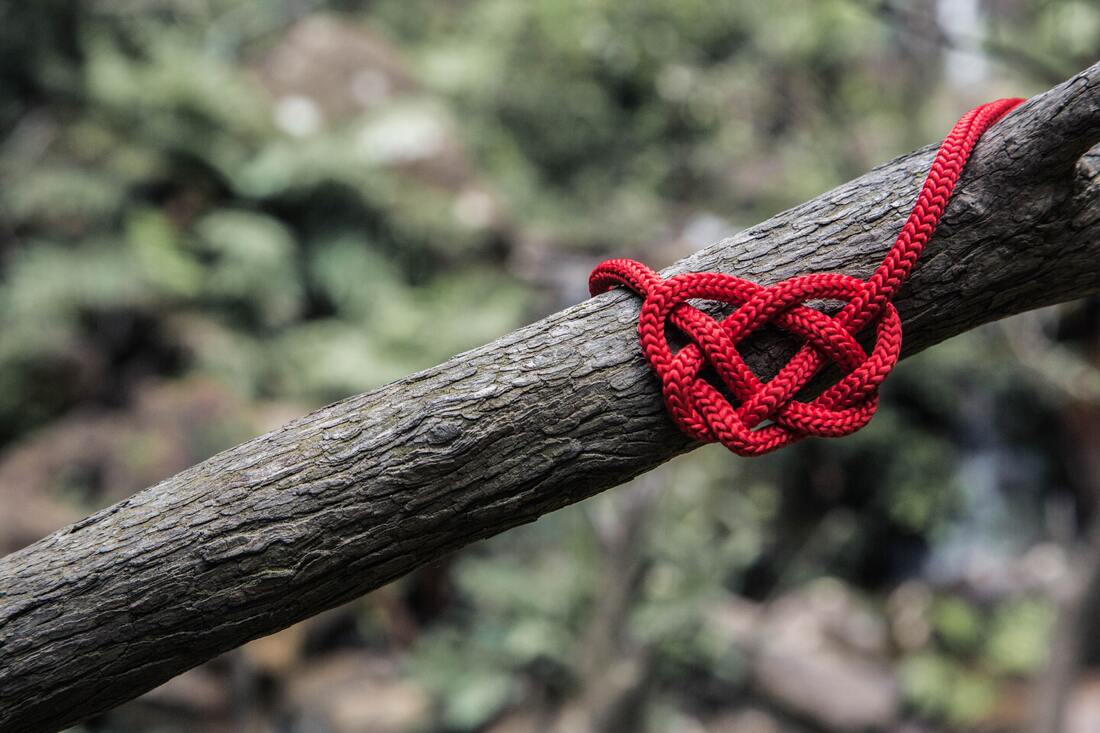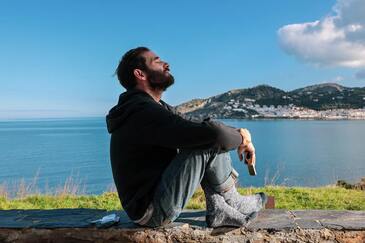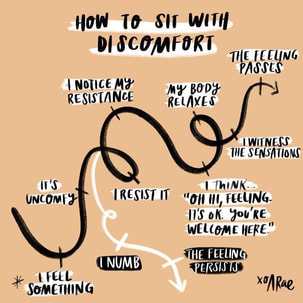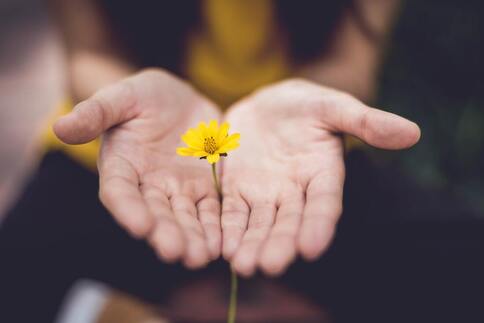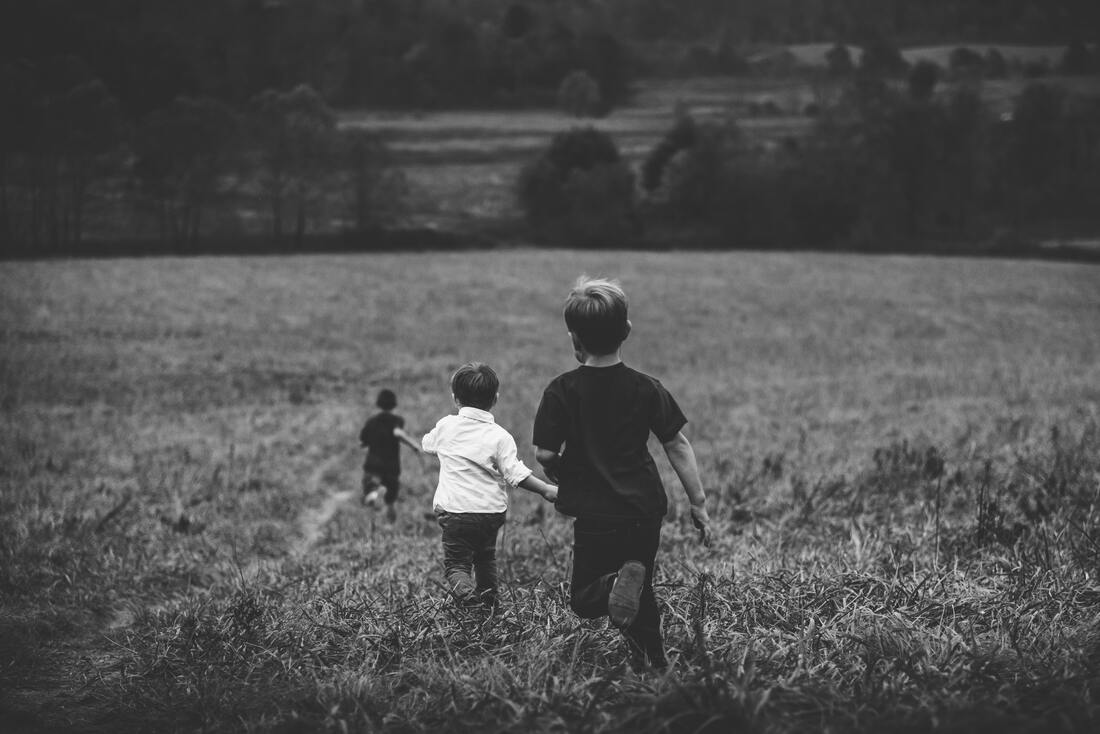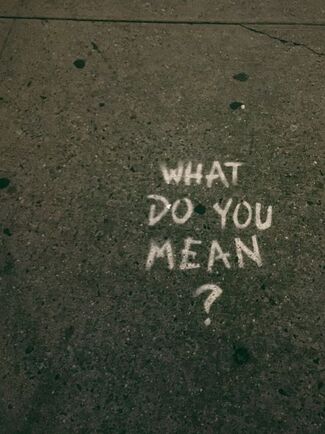Is it when you get the degree or dream job, when you get married or divorced, when you can take more vacations, or maybe even when you retire that you tell yourself you’ll be content?
When it comes to your future, your mind convinces you that you had better “figure it out, or else”, with the “or else” meaning that you’ll never be happy, you’ll never be “okay”.
Your mind is trying to be helpful, to provide stability and help you feel prepared to face whatever may come in the future, and to stay safe in the process. That is the main job your mind has – to ensure your survival. But what if your mind has it all wrong and it's not the future that holds the promise of happiness? How can you get unstuck and move past that feeling of being “in limbo”? What can you do, instead of focusing on the future and waiting to live?
You can set an intention on who you want to BE in this present-moment and allow that to act as a guiding force.
Invest in the you of this exact moment. When we get too caught up in figuring out “what’s next”, we lose sight of this present-moment. And it’s in the present-moment, not in an imagined future, where you will find your power to create the life you ideally want to be living. AuthorLearn more about Bobbi Beuree, Nova Scotia-based Coach + Facilitator
0 Comments
As I was standing with him, talking, he started poking at the crack, making it bigger. I guess in his mind, he assumed I was going to fix it, so it didn’t matter. But it mattered in a deeper way than he could have imagined. Afterwards, as I considered what had happened, I saw how deeply my wiring went when it came to not speaking up when something was happening that I felt wasn’t okay. I heard that wiring in my head as, “Don’t question; don’t say anything; keep quiet; don’t cause trouble.” It was old wiring from childhood that had taken over. I was a grown woman, a homeowner who had hired this man to do work for me. And yet, in that moment when I couldn’t speak up, I was a child, feeling small and powerless. I was a little girl who didn’t feel allowed to speak up, even when what was happening around her didn’t feel right or was upsetting or confusing.
If a new friend tramples one of your boundaries, do you feel comfortable speaking up then? How about when a family member continually says things that you find hurtful – are you willing to address it? Or, does the concept of speaking up, using your voice in an assertive way, feel like “conflict” to you? Does it make you want to dive into a deep hole to protect yourself? Those of us who recognize that wiring of “keep quiet” have gotten really good at suppressing what we feel. It causes us to lose our authenticity and damages our relationship with ourselves and others. When we continually stuff things down that we want to address, it turns into anger and resentment. Ironically, we mistakenly believe that we’re protecting our connection to others by staying small and quiet. This is because initially, if you started doing this in your childhood, there was a good reason for it, and it did keep you safe. But now, it’s pretty likely that it is destructive on both a personal level and in your relationships with others. That unresolved, tense, negative, and conflicted energy doesn’t go away – it lingers beneath the surface until Life presents another opportunity to bring it up in an effort to heal it. Perhaps, like me, these are some things that you need to hear: - You deserve to be seen; you deserve to be heard; you deserve to speak up if something is happening that you're not okay with. - Your needs matter just as much as everyone else’s. - You being assertive does not mean that you are being aggressive, rude, or disrespectful. Practice speaking up and using your voice in situations where it feels safe to do so. Each time I do now, I can feel that little person inside me who didn’t feel permitted to use her voice, cheering me on. Check in and see if you might have a similar experience. Learn more about Core-level Coaching AuthorLearn more about Bobbi Beuree, Nova Scotia-based Coach + Facilitator
Becoming present, and giving your full attention to what you're experiencing through your senses, is a form of mindfulness that can be integrated into everyday activities, like brushing your teeth, watering your plants, showering, walking, etc. Being fully in the present moment, and tapped into what we're seeing, feeling, tasting, hearing, and smelling helps us to feel more connected to the world around and within us, helping to cultivate a sense of peace. Mindfulness, to me, goes much deeper than connecting to your senses. Even more powerful is becoming aware of your inner experience - your thinking, emotions, core beliefs, etc. that are driving your behaviors and overall experience of life.
I mentioned that I recently reached a powerful insight; here's what happened. After an emotionally challenging experience of helping out my parents, who were both unwell at the time, I returned to my place alone. I had been home for about an hour when I had an “experience”. I had been crying on and off and thinking about how challenging it must be for them to navigate everything that comes with the aging process. I had felt flooded with fear of the unknown. But in that moment, a “knowing” rushed through my body, with a message. And that message was, “It’s not happening right now!” It literally felt like time stopped in that moment. I realized that I was still living in that moment with my parents, even though time had passed, and I was no longer in their presence. I saw in that moment that I had been pulling forward the experience I was having hours earlier into my present moment, allowing it to take over my thinking, emotions, and behaviors. I had gotten lost in a STORY about what was happening.
It was almost like a switch had been flipped and all the stories – my thinking – went quiet. I took a deep breath and found my body, here in my calm and safe home. There was music playing, which I had been unaware of moments before, when I was living in my head. I looked around me, taking in my surroundings and then looking out the window at the world outside. As I was having these realizations, I watched as my thinking tried to jump in, telling me it was selfish to "be okay" when my parents were struggling. But because awareness was also flooding in and I was AWAKE, I was able to see it for what it was - old, unhelpful programming. Present-moment Me was able to see that in no way is it helpful to anyone to maintain feelings of fear, grief, and sadness – to extend those emotions beyond what is natural and necessary. I asked myself, “Is it helpful to pity, to worry, to wish for different? No. It is a natural, normal part of life.
The energy of emotion is meant to be experienced, fully + completely. But then, it’s meant to pass, as we move into the next moment, the next experience, and the next emotion. When we keep what we’re feeling alive with what we’re thinking, the emotion gets stored within, where the mind will pull it back up again + again when there’s no need or benefit to do so. With an intention to be present in each moment, noticing when you've gotten hooked by the stories in your mind, you get to experience the peace that is here NOW, instead of getting lost in the pain that often comes from your thinking. More on Mindfulness... AuthorLearn more about Bobbi Beuree, Nova Scotia- based Coach + Facilitator I originally wrote this blog post back in May 2020. Something went a little wonky on my blog page and I lost it, so I thought I would write it up again. It is such a wonderful memory for me, especially since the passing of my dog, Jaz, less than a year after we had this experience. This is what I shared... Yesterday I took my dog, Jaz, for a walk and it was cold and windy. I was hunched forward, with my shoulders up and my head down. I caught the thought, "ugh, I can't believe it's May and it's so cold!". I recognized that I was rushing to get back to the comfort of home.
Life was happening all around me and yet I had caught myself living completely in my head. The story my mind was telling me - that cold equals bad, that it was unfair because it was Spring, that if I just hurried up the future moment would somehow be better - was creating my experience in the moment and dictating how I felt. After pausing to soak in my surrounding, I broke into a run; I felt like I was flying. And suddenly, the same wind that my mind had been cursing and wishing away just a few moments before, felt invigorating! In that moment, I felt fully alive!
Learn More about Core-level Coaching AuthorLearn more about Bobbi Beuree, Nova Scotia-based Coach + Facilitator
It’s typically pretty easy to come up with a few scenarios. I know that I certainly can. That’s because it’s a normal, natural part of being human to reflect back on aspects of our past we once judged or condemned when we reach new insights or see things from a clearer vantage point.
By reminding myself with that phrase – “Amor Fati” – I remember that none of us can see “the big picture of Life”. So then, I remind myself that ultimately, in the long run, I really don’t know if something is “wrong” or “bad” or any other negative impression I have of it. I’ve had enough challenging experiences in my life, as I'm sure you have, to know that nothing is “all bad” and nothing is “all good”. By embracing that middle ground and searching for the positives in every situation your mind wants to label as bad or wish away, you can experience a sense of well-being - even in the midst of the situations that are challenging and feel painful. Back in the Spring, I had another opportunity to allow the life philosophy of Amor Fati to guide my perspective. I pursued a live-in work opportunity that I had identified as being “perfect!” It would have meant selling my house, which would have provided financial security. It would have allowed me to do work that I love part-time, while still having the autonomy to maintain my coaching practice. I was quickly able to recognize that my mind had loved creating a story of how everything would unfold so perfectly once I got the job. But I had the renewed realization that there was actually no way to KNOW that. I realized that if I could honestly say that I had invested 100% in exploring the opportunity and it didn’t work out the way my mind decided it “should”, then it was truly okay. Even though the entire scenario seemed "perfect" to my rational, present-moment mind, when things didn’t unfold in the way I had been hoping or planning for, I had a choice. I could fall into despair or resentment that things hadn’t turned out the way my mind had decided they should. Or, I could choose to believe that Life had my back, redirecting me away from something that was actually not mine to experience, or may have ultimately not been good for me.
I invested myself, giving my attention and energy to what I was been being drawn to. I let myself get excited by the concept of things unfolding just as I had envisioned. When things didn't go as planned, I realized that I had still gotten to experience positive emotions - excitement, hope, joy, enthusiasm - so how could it be a "bad thing". So, instead of caring less, I have discovered that adopting this life philosophy brings with it the potential to become more passionately engaged with life. You follow the pulls and inclinations toward what interests you, what you enjoy, what you want to experience. It’s ACTIVE, giving your all to what feels right to you. The key is, if that doesn’t work out the way your mind has convinced you it has to for you to be happy or okay, you fully accept it. Remember, just because your mind convinces you of how everything is going to, or should, unfold, there’s really no way to know what is ultimately in your best interests. Choose to believe that Life has your back. Even when what is showing up in your life is not want you would consciously, intentionally choose, practice trusting that it is all happening exactly as it is meant to. This is in no way denial or wishful thinking – it is acknowledging the fact that you, ultimately, don’t know if it is good or bad. As you settle more and more into this philosophy, you start to see circumstances and scenarios completely differently. You experience a sense of flow and become more flexible in how you approach challenging situations. Intentionally choosing acceptance over resistance frees up your energy so that you can pursue what you want, instead of focusing on and energizing what you don't. Learn More about Core-level Coaching AuthorLearn more about Bobbi Beuree, Nova Scotia-based Coach + Facilitator
Emotional intelligence is being able to recognize (as it’s happening) if what you’re feeling and how you’re reacting is based on the here-and-now, on what is objectively happening. Or, if your mind has automatically interpreted what is going on in a certain way, based on past programming and old, emotional wounds.
When, out of the blue, you feel taken over by strong emotions in a situation (that rationally you know isn't that big of a deal), it points to an old wound being triggered. Navigating the aspects of life that bring up strong (and sometimes scary-feeling) emotions can be difficult. Our subconscious has lots of hidden little wounds that get "poked" by what's happening in the present moment. It's important to take it at your own pace when you're exploring your patterns.
By doing the work to recognize our reactions, we start to notice more quickly when we are being flooded by survival-stress in a situation. It's a clear indicator, based on the intensity of that rush of emotion and the automatic reaction, that an old wound has been triggered. This happens when something that is happening in the present moment and in your current environment reminds your subconscious mind of a time in the past when you were hurt, scared, or experiencing some other strong, negative emotion. Because the subconscious is faster to pick up on and react to “threats” than the frontal cortex, which thinks and reasons things out, we get triggered into a reaction before we know what’s happened.
So, when I feel the sensations that I’ve grown to recognize as meaning I’m triggered (my heart starts pounding, my mouth goes dry, I feel a hot flush in my face, and I want to cry), I know I have to slow things down, using my breathing. That’s the “S” in STOP. Next, for “T” I take notice of what’s happening in my body and mind. I get curious and practice allowing what is there to be there, naming the emotion, and allowing the sensations to pass through. I check in on the thoughts that are contributing to how I feel. I choose to Open Up (“O”), making space for the uncomfortable things I may be feeling. And then, I practice (“P”) self-compassion in acknowledging, with love, the wounded part of me that has surged up. When you can practice catching and recognizing your automatic reactions in challenging situations, you empower yourself to respond from a calmer, more rational, present-moment perspective. Learn More about Core-level Coaching AuthorLearn more about Bobbi Beuree, Nova Scotia-based Coach + Facilitator
I felt pulled back to the practice in April 2021 and committed to practicing daily. I was pretty consistent, but would tend to skip a few days at a time (usually on weekends). So, in April of this year I promised myself that I would complete a full 100-day cycle. I will be honest in saying that, deep down, I didn't believe I would follow through fully. It has been amazing to watch those automatic tendencies stealthily come up. "I'm kind of sore today - maybe I'll just skip it this one time", or "who will know? You really don't have to do this", or "I deserve a break", and on and on.
Your mind likes status quo and predictability. It's not trying to deliberately sabotage you. Ultimately, it's trying to keep you safe by keeping you the same. The part of your mind that's doing this can't see the potential positive benefits. It's when your level of self-awareness grows and you can acknowledge what's going on beneath the surface, while still intentionally choosing to stretch your comfort zone, that real change and growth is possible. Learn More about Core-level Coaching AuthorLearn more about Bobbi Beuree, Nova Scotia-based Coach + Facilitator
When we have a strong emotional reaction to something, we tend to focus in on what has happened. We think it's what is causing us to feel the way we do. Something in the present moment, maybe something someone has said or done, has touched on a painful program within you. Some common core wounds from childhood include: "I'm not worthy, wanted, or loved", "I'm bad, wrong, defective", "I'm a burden, a problem", "I'm unimportant or not good enough", just to name a few. What's behind your REACTION? What is in there – what old beliefs, what emotional wounds from the past, what faulty interpretations? What’s the ammunition that’s inside you? Dr. Gabor Mate, in one of his videos, states that when we get upset or reactive, we tend to focus in on the “trigger” – on the situation that is happening, instead of investigating the emotional pain that we’ve stored inside of us that is coming to the surface.
If you didn’t have old emotional wounds inside of you, nothing anyone said or did would impact you. It's a good indication that an old emotional wound has been reopened when your reaction to a situation is out of proportion to what's happened. Often, in retrospect, we'll be the first to say, "Wow, I don't why I got that upset over something so small!" And here's the thing - life will continue to bring you opportunities, whether you like it or not, to bring up and release the pain that you’ve stored inside. In order to start healing your emotional wounds, you have to be willing to feel what is painful, instead of pushing it down, avoiding it, or distracting yourself from it. Go into it – soften – allow it to be there. Let yourself feel it. With practice, you can start to recognize when an old core belief from the past has been triggered and is driving your reactions. You can see the patterns that have developed throughout your life that are now limiting and destructive. You can even start to name it when you see it rise up - "there is the "I'm not lovable" story", for example. It can be difficult to release that old, painful energy that’s been stored and accumulated inside. But your happiness and well-being count on you being willing to recognize what is happening and committing to feeling your full range of emotions. Learn More about Core-level Coaching AuthorLearn more about Bobbi Beuree, Nova Scotia-based Coach + Facilitator
But the problem is, the emotion doesn't just go away. It's still there, just beneath the surface, ready to spring into action the next time it gets triggered.
Often, our emotions contain important messages – they tell us so much when we're willing to listen to them. When we ignore them, we experience higher levels of stress, anxiety, and general discontent. A key characteristic of developing Emotional Mastery is being able to create a deliberate pause between impulse (what you feel) and response (ways you typically avoid the feeling). What if instead, you could simply sit with the emotion – allowing a space for it and just noticing it, while resisting the urge to act? When we can practice noticing and allowing our emotions, we experience a choice point. As much as it may not seem like it at times, we can choose in that moment to stay with what we're feeling and not run away from it.
We can practice having those sensations and not getting swept away by them. We can practice putting a bit of distance between our core self and the thoughts and emotions we are experiencing. Practicing allowing your full range of emotions is not only brave, but so healthy. And the ironic part is that when we accept what we feel and allow it be there, instead of running and hiding from it, the feeling passes all on its own.
Go easy on yourself and be sure to ask for support from friends, family, or a professional if challenging emotions start to feel overwhelming. Self-compassion and healthy self-care are key components in navigating challenging emotions. Be good to you! *Please note that one size does not fit all and those who have mental health diagnoses or challenges in which their emotions are significantly debilitating may struggle with doing this practice. Often, it is not because of lack of effort, but that sitting with discomfort is simply beyond the scope of what they are currently able to manage on their own. In these cases, seeking help and support from a trained professional may be helpful. Learn More about Core-level Coaching AuthorLearn more about Bobbi Beuree, Nova Scotia-based Coach + Facilitator
Exploring your upbringing and earliest experience of life is not, in any way, meant to blame, shame, or point fingers at the people who raised you. Just as each of us is doing the best we can in this moment, with the level of self-awareness and emotional well-being we have, so were they.
By building our level of insight into the programming of our past, it opens up the opportunity for emotional healing in the present-moment. We explore childhood conditioning to understand the wiring that took place back then that is dictating your current life experience. So, instead of causing resentment and judgment, it actually has the potential to raise our level of self-compassion and empathy for others. Our core beliefs formed in childhood. When we think of beliefs, it's often the conscious ones that come to mind, like, “I believe in God” or “I believe that people should be good to one another”. They make up a tiny percentage of our overall beliefs. Much deeper are the subconscious beliefs that dictate how you see yourself, and interpret what happens around you – beliefs that are basically creating your reality.
You decided what you could expect from other people and from life in general. You internalized all the messaging (verbal, non-verbal, energetic) and turned it all into a story, a type of "Life Script", that helped you make sense of the world and stay safe within it. The problem with the story we wrote is that it was based on faulty information. We were trying to learn to navigate the world; we needed to figure out where we fit. Along with what was said to us directly, through verbal messaging, we also interpreted everything we saw and heard. Our mind told stories and connected dots that were often just not true. Your child-mind was in programming mode, with a brainwave pattern that allowed information to be "downloaded". As children, we are sponges. We are self-involved. We have to be. We relate everything back to ourselves – "what does this mean for and about ME?” Every experience was filtered through that lens and conclusions were reached that were often inaccurate and painful. When that happens, we’re truly operating from the perspective of a young child. Our subconscious wiring has caused us to become emotionally dysregulated. Your emotional programming determines how you feel about, express, process, and experience emotions. In childhood, you watched how important adults to you handled their emotions. You grew to understand which emotions were okay to have and express, and which ones weren’t okay. You also decided how you FELT about emotions in general. Were they something to avoid, did they mean you were weak or needy? Did you believe you were you responsible for how others felt? Were emotions embraced, accepted, and openly discussed? It’s the blueprint you would have taken on as a “how-to” when it comes to emotions. If I had to guess, I would say that, like me, your “how-to” blueprint stopped working for you a long time ago. By doing self-work, you can uncover the subconscious wiring + programming you have around emotions. And by working with your emotional triggers (we all have them – big + small!) you can make the switch from habitually reacting to your emotions to intentionally responding to what is happening in the present-moment. Learn More about a Core-level Coaching AuthorLearn more about Bobbi Beuree, Nova Scotia-based Coach + Facilitator |
AuthorBobbi Beuree, Certified CAN Coach + Facilitator is located Nova Scotia and provides interactive 1:1 coaching services, as well as group coaching events. Archives
March 2024
Blog list: |
- Home
- About
- Connect
- Blog
- Why Coaching?
-
Key Topics
- Stress Management
- Practicing Healthy Self-Care
- Dealing with Difficult Emotions
- Thinking Traps and Limiting Beliefs
- Procrastination and Lack of Motivation
- Gaining Control Over Habits
- Life Direction
- Mindfulness
- Emotional Intelligence
- Self-Management
- Interpersonal Relationships
- Anxiety
- Perfectionism
- Self-Esteem + Self-Confidence









